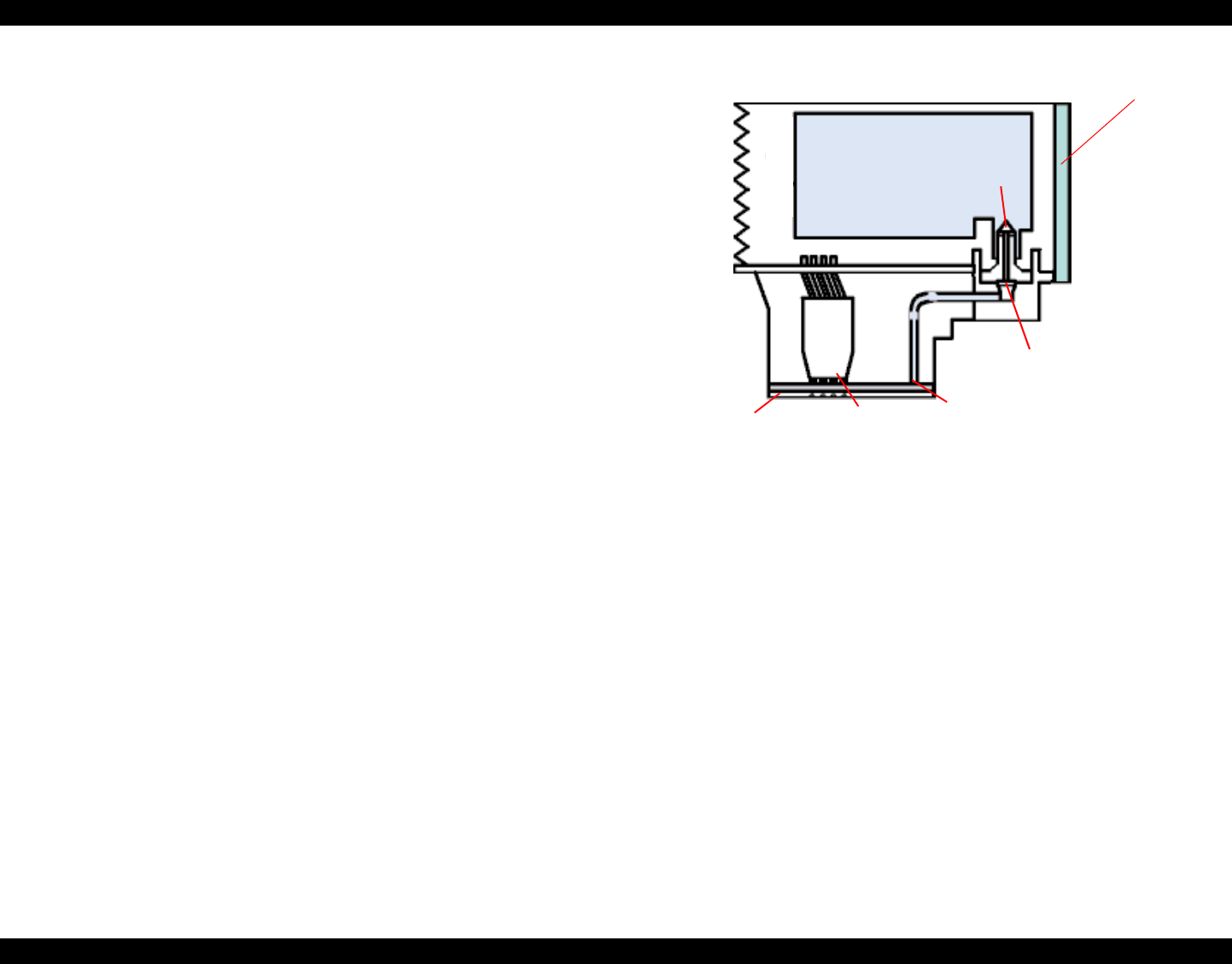
Stylus C40UX/C40SX/C20UX/C20SX Revision A
Operating Principles Overview 26
2.1.2 Printhead
The printhead uses a new developed U-CHIPS head and Stylus C40UX/C40SX/
C20UX/C20SX can perform multiple shot printing and variable printing. Printhead
nozzle configuration is as follows.
48 nozzles x 1 row: Black (nozzle pitch of the row: 1/120 inch)
45 nozzles x 1 row: Color (nozzle pitch of the row: 1/120 inch)
In the one row for the color, 15 nozzles are assigned for each yellow,
magenta, cyan color)
The basic operating principles of the printhead, which plays a major role in printing,
are the same as previous models; on-demand method which uses PZT (Piezo Electric
Element). In order to uniform the amount of ejecting ink, the printhead has its own
head ID (6 digits for this printhead) which adjust PZT voltage drive features.
The printer read the head ID form EEPROM and generates appropriate PZT drive
voltage to prevent amount of ink from varying by printheads.
Following explains printhead basic components.
PZT
PZT is an abbreviation of Piezo Electric Element. Certain amount of voltage
expands and contracts PTZ. The drive wave generated on MAIN board drives PZT
and PZT pushes the top cavity which has ink stored to discharge the ink from each
nozzle on the nozzle plate.
Ink Cavity
The ink absorbed from the ink cartridge goes through the filter and then is stored
temporarily in this tank called “cavity” until PZT is driven.
Nozzle Plate
The board with nozzle holes on the printhead surface is called Nozzle Plate.
Filter
When the ink cartridge is installed, if any dirt or dust around the cartridge needle is
absorbed into the head, there is a great possibility of causing nozzle clog and
disturbance of ink flow, and finally causing alignment failure and dot missing. To
prevent this problem, a filter is set below the cartridge needle, where ink is filtered.
Figure 2-2. Printhead Sectional Drawing
Head Driver Board
Needle
Ink Cartridge
Filter
Cavity
PZT
Nozzle Plate


















